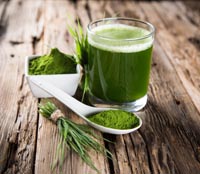Vitamin E
/Vitamin E is a fat soluble cluster of compounds that comes in eight different forms, all of which are essential to the overall health of your body. One of its major functions in the body is as an antioxidant, which helps protect your cells from the damage caused by free radicals. Vitamin E is also responsible for immune function, skin health, cell signaling and regulation of gene expression. Research has shown Vitamin E can help improve Diabetes, and protect against bladder cancer.
The best way to increase your levels of Vitamin E is to eat more vitamin rich foods. Oils such as wheat germ, sunflower, and safflower, nuts such as almonds, hazelnuts, and peanuts, and vegetables such as tomatoes and spinach all contain high-levels of Vitamin E. This food-based Vitamin E is better for the body than supplementation because it contains all eight forms of the vitamin. If you are going to consume your Vitamin E through food, make sure to eat the nuts and leafy greens raw. Heat can kill up to 2/3 of the available vitamins and nutrients.
Sometimes your Doctor may want you to add additional supplementation to your diet. If this is the case, look for supplements that contain mixed tocopherols and tocotrienols. Some of the best supplements will also have gamma-tocopherol. Because Vitamin E is fat soluble, doses at too high of a level can be toxic. For an average adult, levels should not exceed 1000 mg. Because Vitamin E can effect blood coagulation, it should not be taken before surgery. And, as with any supplementation, it is important to consult with your physician.
References




















